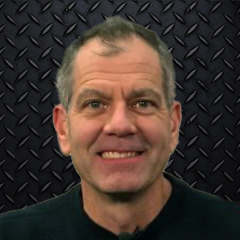
Twin Cam Compensator Review
Mike RoenMike Roen put together this excellent Tech Tip video to demonstrate and explain the reasons for Twin Cam compensator issues on various Harley-Davidson Twin Cam models.
The chances of a Harley-Davidson Big Twin developing Twin Cam compensator issues depends mostly on model year and mileage. The job of the compensator assembly is to absorb or cushion the force of energy upon startups and when shifting. When a compensator assembly is excessively worn, the force of energy is directed back to the starter end of the primary drive.
Indications of a bad or failing compensator are hard startups and/or an audible clunking from the primary drive upon shutdown.
If not addressed early, this condition will wreak havoc on a starting system. The starter clutch, starter gear, and starter ring gear will become damaged and eventually fail. Also, the starter motor itself will weaken after many strained startup attempts. Up to the year 2006, Harley-Davidson owners did not experience any issues with the Twin Cam compensator assembly. The design was robust and worked very well for decades.
Harley-Davidson changed the compensator assembly design in 2007. This coincided with the introduction of the 96ci motor and the six-speed transmission.
The 2007 to 2010 compensator assembly design is probably the most prone to premature wear and failure. This design consists of a spring stack that is attached to the charging system rotor. If changing or updating to a Screamin’ Eagle or Baker assembly, the owner will also incur the cost of a new rotor.
The compensator design changed for years 2011 to 2013. This was also poorly designed and plagued with the same issues.
This was basically the Screamin’ Eagle compensator. However, lubrication was still an issue, which still resulted in premature wear.
The 2014 and later compensator design corrections finally made for a much more durable assembly.
In this video, Mike explains how to diagnose and options for correcting and repairing compensator issues on your Twin Cam.
Although expensive, a lot of owners prefer to go with a Baker compensator assembly.
Many owners say, “Why give Harley more $$ when you are absorbing the cost for its incompetent engineering?”

Share tips, start a discussion or ask other students a question. If you have a question for an expert, please click here.
Already a member? Sign in
No Responses to “Twin Cam Compensator Review”